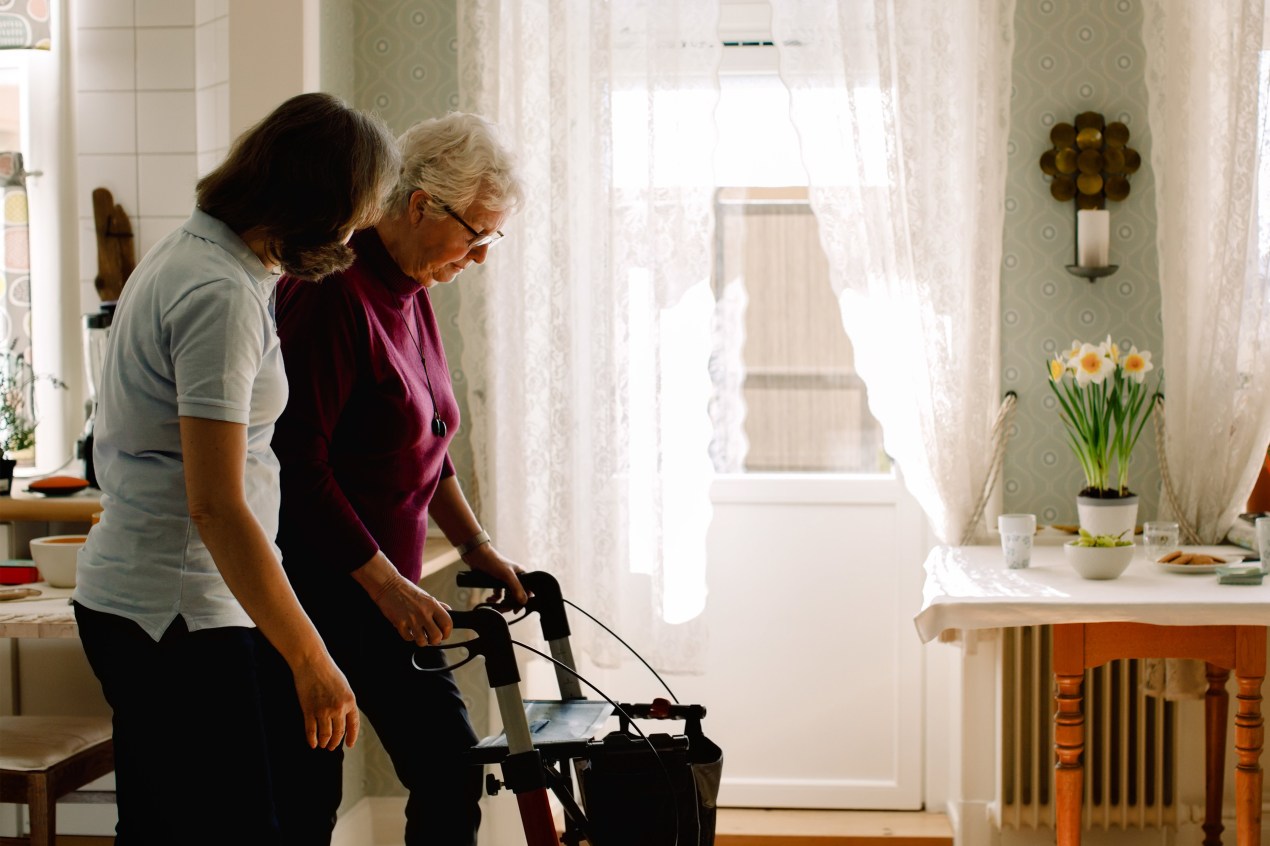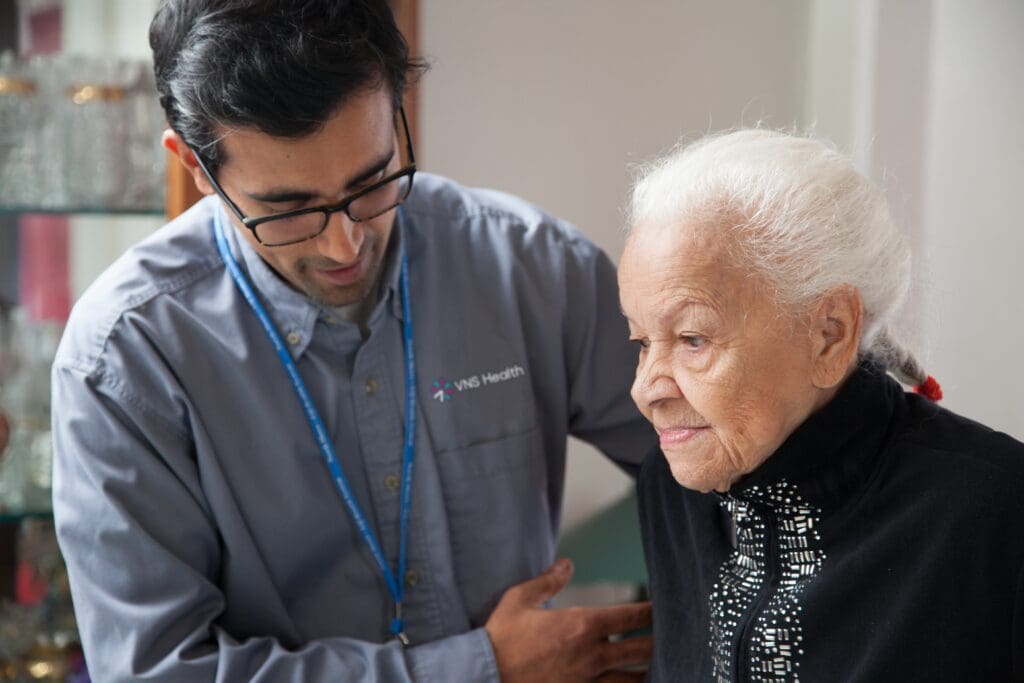
Comprehending Dementia Treatment: An Overview for Loved Ones
The intricacies of dementia care need a nuanced understanding that prolongs past standard knowledge of the condition itself. As we check out these essential components, it comes to be evident that the journey of understanding dementia care is not simply about the individual influenced, yet additionally regarding the detailed dynamics that form their experiences and relationships.
What Is Mental deterioration?
Dementia is a cumulative term that encompasses a range of cognitive problems characterized by a decrease in memory, thinking, and social capabilities extreme enough to disrupt day-to-day live. It is not a specific illness yet instead an umbrella term that includes numerous types of cognitive problems, with Alzheimer's condition being one of the most common. Various other types include vascular mental deterioration, Lewy body mental deterioration, and frontotemporal mental deterioration, each with distinct characteristics and underlying reasons.
The onset of dementia usually includes gradual cognitive decrease, affecting the person's capacity to carry out everyday tasks and engage meaningfully with others. These impairments can manifest as problems with interaction, problem-solving, and judgment. As mental deterioration progresses, people might experience changes in state of mind and behavior, which can better complicate their treatment and social communications.
Recognizing mental deterioration is essential for households, caregivers, and healthcare professionals to supply proper assistance and interventions. Early diagnosis and treatment can assist take care of signs and enhance the lifestyle for those impacted. Additionally, it fosters a much deeper understanding of the difficulties faced by individuals with dementia, highlighting the importance of thoughtful care and assistance throughout their trip.
Recognizing the Symptoms
Recognizing the symptoms of mental deterioration early is important for effective intervention and assistance - memory care charlotte. Dementia includes a series of cognitive problems that can manifest in different ways, often impeding day-to-day functioning and lifestyle. Typical very early signs consist of memory loss, specifically failing to remember recent events or discussions, which might originally be dismissed as typical aging
As the problem progresses, individuals might show problems with analytic, preparation, or completing familiar tasks, such as managing funds or following a recipe. Complication about time or location usually arises, resulting in disorientation and anxiousness. Adjustments in state of mind and behavior are likewise substantial indicators; people might become withdrawn, cranky, or show apathy towards activities when enjoyed.
It is vital to come close to these observations with sensitivity and understanding, as they can be distressing for both the individual and their loved ones. Motivate attention to these indications can lead to better results and assistance for those affected by mental deterioration.
Reliable Communication Methods

Non-verbal hints play an important duty in communication. Preserving eye call, using suitable faces, and utilizing motions can assist communicate your message much more efficiently. Additionally, developing a distraction-free environment can better facilitate meaningful interactions.
Energetic listening is essential; give the person sufficient time to react without interrupting. Validate their experiences and feelings, which promotes count on and motivates open dialogue. When going over familiar subjects or memories, use triggers to guide the conversation, aiding them feel involved and valued.
Last but not least, be prepared to adapt your strategy based on the individual's existing cognitive state. Flexibility in interaction techniques ensures that you stay linked, reinforcing the relevance of your relationship. By applying these techniques, you can produce an encouraging atmosphere that encourages favorable communications with people affected by dementia.
Developing a Supportive Atmosphere
Developing an encouraging atmosphere is vital for boosting the top quality of life for people with dementia. This environment ought to prioritize convenience, security, and familiarity to lower anxiousness and complication.
Incorporating regimens can provide a feeling of security. Foreseeable schedules assist people with dementia comprehend what to anticipate throughout the day, therefore reducing feelings of disorientation. Customizing the home with acquainted things, pictures, and mementos can evoke positive memories and create a feeling of belonging.
Additionally, consider the sensory elements of the setting. Soft shades, soothing scents, and gentle sounds can add to a calm atmosphere. Equilibrium excitement to stay clear of frustrating the person; peaceful areas for leisure must enhance a lot more active spaces for social communication.
Self-Care for Caregivers
Supporting individuals with mental deterioration calls for not just a well-structured atmosphere yet likewise interest to the wellness of caregivers. Caregivers typically deal with emotional, physical, and mental difficulties that can result in burnout otherwise effectively addressed. Focusing on self-care is necessary to preserve their health and wellness and efficiency in offering care.
First, caretakers should establish a normal routine that includes time for individual tasks and leisure. Taking part in pastimes, exercise, or merely taking a stroll can substantially minimize stress. It is critical to preserve a well balanced diet plan and make certain sufficient rest to improve physical strength.
In addition, caregivers should seek social assistance. This can be accomplished by joining assistance groups, engaging with buddies, or speaking to relative about their feelings and experiences. Such links aid caretakers really feel less isolated and offer important emotional outlets.
Last but not least, caregivers need to not wait to seek professional help when needed. Consulting mental health specialists can aid in establishing coping techniques and provide devices for taking care of the emotional check this toll of caregiving. look here By actively exercising self-care, caregivers can improve their health, eventually benefiting both themselves and the people they look after.
Final Thought
In final thought, comprehending mental deterioration treatment is essential for boosting the top quality of life for individuals affected by this condition. Additionally, prioritizing self-care for caregivers ensures their well-being, ultimately benefiting both caregivers and those receiving care.
As we explore these important components, it comes to be evident that the journey of recognizing mental deterioration care is not simply concerning the private affected, yet likewise regarding the intricate characteristics that form their partnerships and experiences. Other forms include vascular dementia, Lewy body dementia, and frontotemporal dementia, each with distinct characteristics and underlying reasons.
As dementia proceeds, individuals might experience adjustments in mood and behavior, which can better complicate their care and social communications.
Furthermore, it fosters a deeper understanding of the obstacles dealt with by people with dementia, highlighting the importance of thoughtful care and assistance throughout their trip.
In final thought, understanding mental deterioration treatment is vital for boosting the high quality of life for people impacted by this problem. (dementia care charlotte)